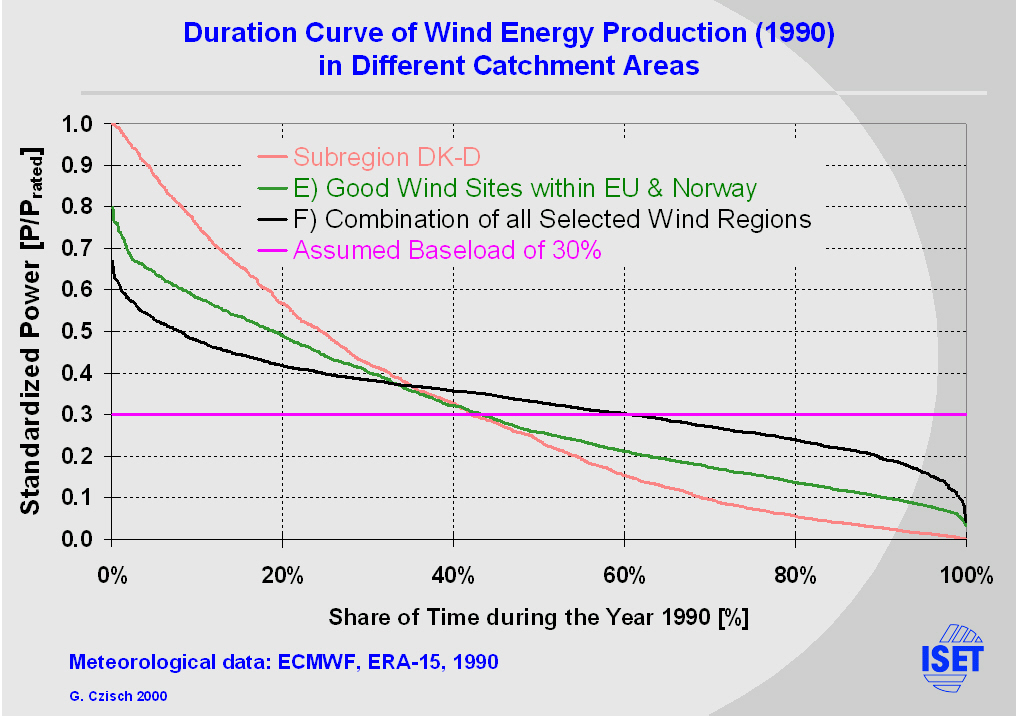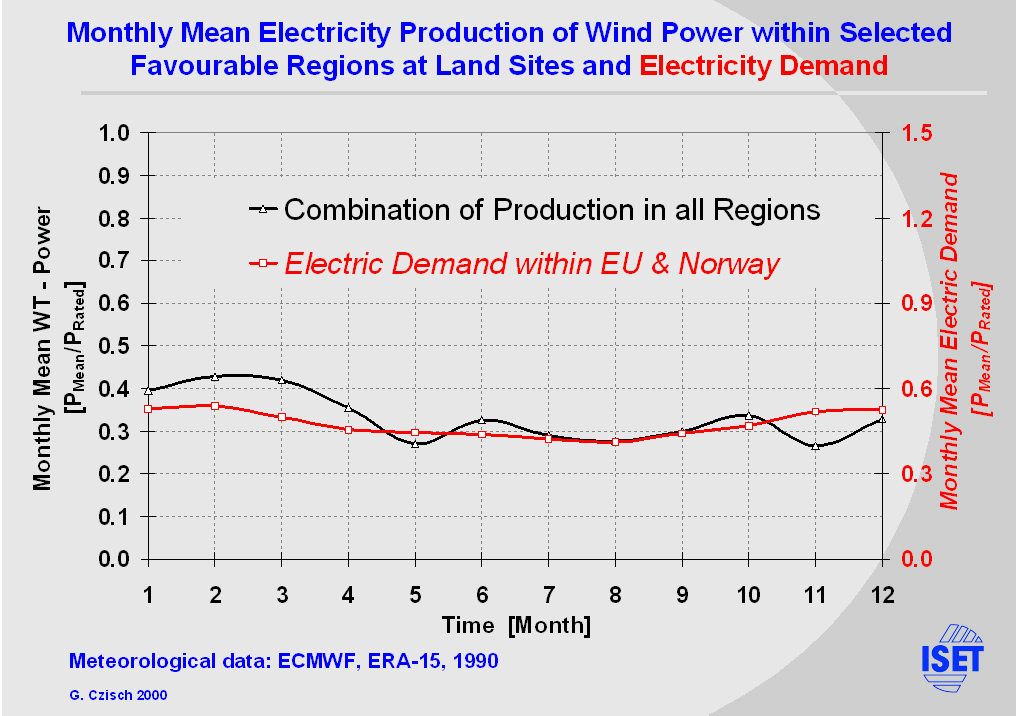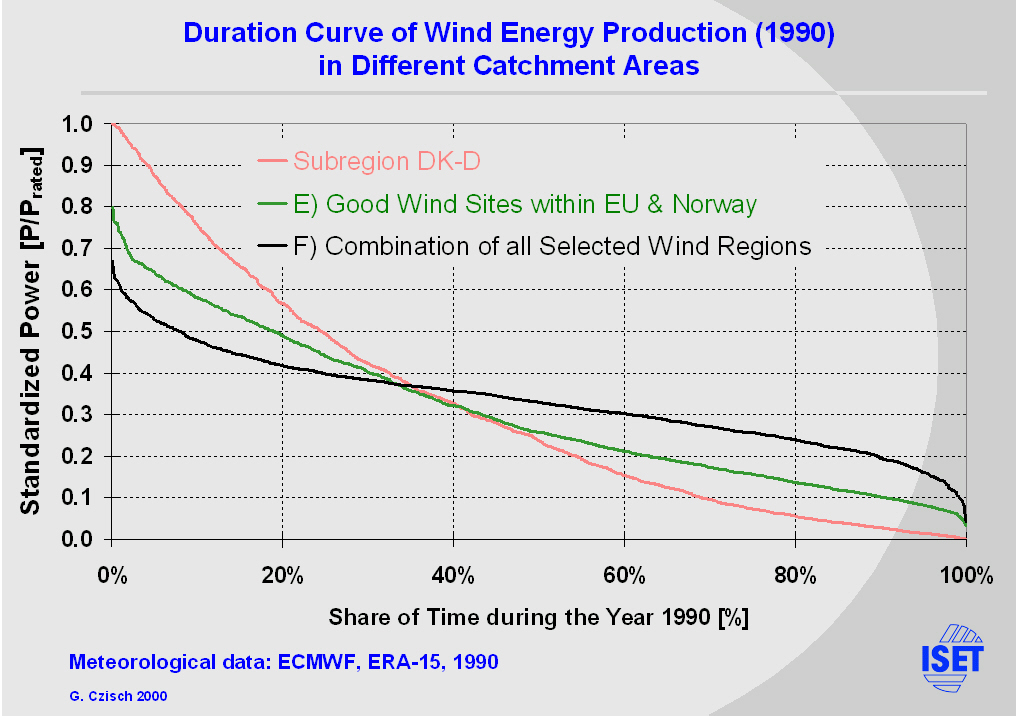Lecture EWEA 2000 - Slide 14: Unterschied zwischen den Versionen
Aus Transnational-Renewables
(Die Seite wurde neu angelegt: „{{Slide|Wp21-slide|en|14}}“) |
|||
| Zeile 1: | Zeile 1: | ||
{{Slide|Wp21-slide|en|14}} | {{Slide|Wp21-slide|en|14}} | ||
| + | Comparing the duration curves of wind power production at different catchment areas we see that the maxima decline with the size. | ||
| + | |||
| + | * While within the European subregion Denmark and Germany sometimes the rated power is reached, the maximum in bigger regions declines significantly. In case of simultaneous use at all regions the maximum is about 65%. | ||
| + | * On the other hand the minimum slightly increases with the size of the catchment area to 4%. In an other Study, where the combination of offshore and northern African wind power was subject a minimum of 12% was found (see [[Lecture EWEA 2000 - Slide 14|duration curve with offshore sites]]). | ||
Aktuelle Version vom 3. Oktober 2010, 15:50 Uhr
| Lecture Magdeburg [2001,en], Vortrag Lübeck [2006,de], Lecture Barcelona [2008,en], Vortrag EWEA 2000 [2000,en] |
| Vorstellung regenerativer Energien: Biomasse, Windenergie, Fallwindkraftwerke, Geothermie, Wasserkraft, Solarenergie |
| Overview | 
|
Comparing the duration curves of wind power production at different catchment areas we see that the maxima decline with the size.
- While within the European subregion Denmark and Germany sometimes the rated power is reached, the maximum in bigger regions declines significantly. In case of simultaneous use at all regions the maximum is about 65%.
- On the other hand the minimum slightly increases with the size of the catchment area to 4%. In an other Study, where the combination of offshore and northern African wind power was subject a minimum of 12% was found (see duration curve with offshore sites).


